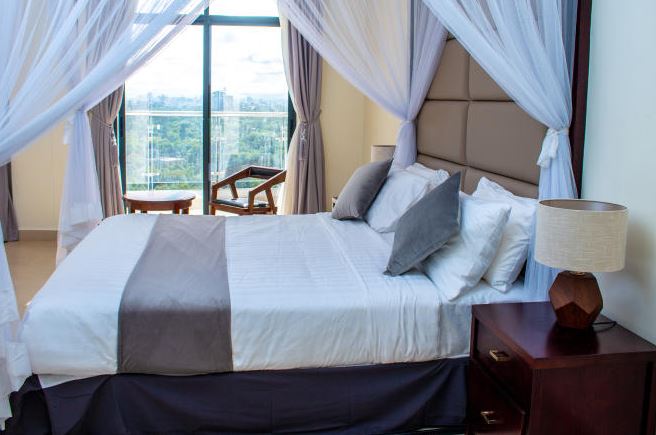×
The Standard e-Paper
Fearless, Trusted News

A bedroom at the Nyali golf view residence in Mombasa. [Maarufu Mohamed, Standard]
Owners of Airbnb facilities will now have to obtain licences and pay annual fees to run their homestay businesses.